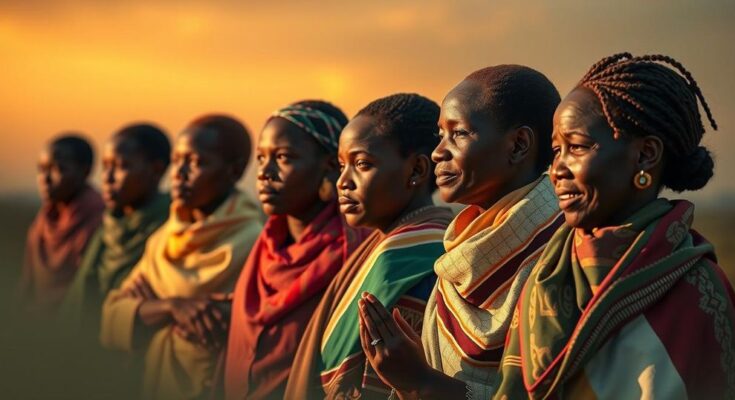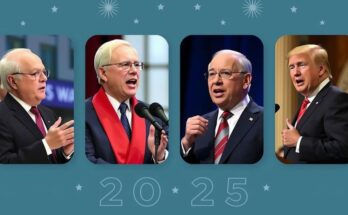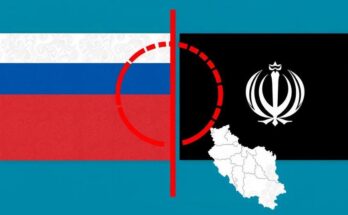The article envisions 2025 as a crucial year for South Sudan, emphasizing peace, unity, and collective responsibility. It advocates the involvement of youth and women in peacebuilding and stresses the importance of addressing past grievances. The role of the diaspora and international partners is highlighted as essential in promoting sustainable peace and development across the nation.
As we stand on the threshold of 2025, I wish to extend my sincerest New Year greetings to all South Sudanese, both within our homeland and abroad. This year offers a unique opportunity for hope and renewal, where we can collectively strive for a transformative era in our nation’s narrative. It is through rebuilding trust and fostering reconciliation that we can lay the groundwork for lasting peace and prosperity.
Peace serves as a crucial element not merely defined by the absence of conflict, but as a driving force for progress, justice, and equality. The prolonged suffering from violence and division in South Sudan necessitates a united front in healing our nation. In this pivotal year, we must channel our efforts toward healing, aligning them with our united aspiration for a brighter future.
The diversity of South Sudan is indeed our strength, yet unity is paramount to harness this potential. Ethnic and political divides have historically impeded our advancement; however, 2025 presents an opportunity to transcend these barriers. It is vital to cultivate a national identity founded on mutual respect and shared values, allowing unity to become the bedrock of our aspirations for a peaceful and thriving South Sudan.
The youth of South Sudan embody the nation’s vibrant spirit and innovative capacity. They are not merely the future leaders; they are catalysts for change today. In 2025, it is imperative that young individuals emerge as advocates for peace, mediating dialogues and propelling community-driven initiatives that are instrumental in achieving enduring peace and development.
Women, as the foundational pillars of our communities, play a critical role in peacebuilding processes. Their strength, insight, and capacity to foster constructive dialogue are essential for cultivating lasting harmony. In the year ahead, we must ensure that women are irrevocably involved in decision-making processes across all levels, acknowledging their vital contributions toward building an equitable society.
Addressing historical grievances is crucial for our forward trajectory; thus, justice and reconciliation must be seen as complementary elements. Establishing a comprehensive national truth and reconciliation framework will enable dialogue among victims and perpetrators, fostering understanding and accountability for past wrongs. This approach will lay the groundwork for a harmonious and equitable future.
Investing in peace is not purely a moral obligation, but a necessity for our socio-economic landscape. Strategic investments in infrastructure, education, and healthcare are essential for narrowing societal divides and enhancing quality of life. Furthermore, reinforcing governance through transparency and accountability will instill public trust, creating an environment conducive to peace.
The South Sudanese diaspora along with our international partners also have a significant role in this journey much like the rest of us. The diaspora can enrich our efforts with resources and expertise, while global allies can facilitate technical support and funding to bolster peace initiatives. Coordinated efforts across borders will magnify local endeavors and fortify our framework for sustainable peace.
Peacebuilding is a collective responsibility that transcends governmental obligations. It is incumbent upon religious leaders, community elders, youth, women, and civil society organizations to collaborate and advocate for peace at all levels. As we move into 2025, it is crucial that every interaction reflects our steadfast commitment to unity and reconciliation.
Declaring 2025 as the Year of Peace and Renewal signifies more than a mere declaration; it acts as a clarion call to action. It is our chance to construct a nation wherein children can thrive in safety, communities can prosper in unity, and wealth is equitably shared among all. Together, let us navigate our challenges and sculpt a future wherein peace is an enduring reality rather than a fleeting aspiration.
As we embark on this dedicated journey, let us commit to elevating unity above division and diligently work toward the envisioned South Sudan. May the year 2025 be the turning point where we convert hope into action and establish peace as our enduring legacy. Happy New Year to all South Sudanese; the time for collective action is now.
The article discusses the upcoming year of 2025 as a potential turning point for South Sudan, emphasizing the importance of peace, unity, and collective responsibility. It highlights the ongoing challenges the nation faces due to past conflicts and divisions and stresses the role of various groups, including youth and women, in promoting reconciliation. The author, Malual Bol Kiir, advocates for a collaborative approach to peacebuilding, recognizing the contributions of the South Sudanese diaspora and international friends in this endeavor.
In summary, the call for 2025 to be recognized as the Year of Peace and Renewal in South Sudan underscores a collective commitment to healing and progress. Peace is presented not only as a foundational requirement for development but also as a shared responsibility among all sectors of society. By fostering unity, recognizing the contributions of youth and women, and embracing a collaborative approach, South Sudan can transform its narrative into one of harmony and shared prosperity.
Original Source: www.radiotamazuj.org




